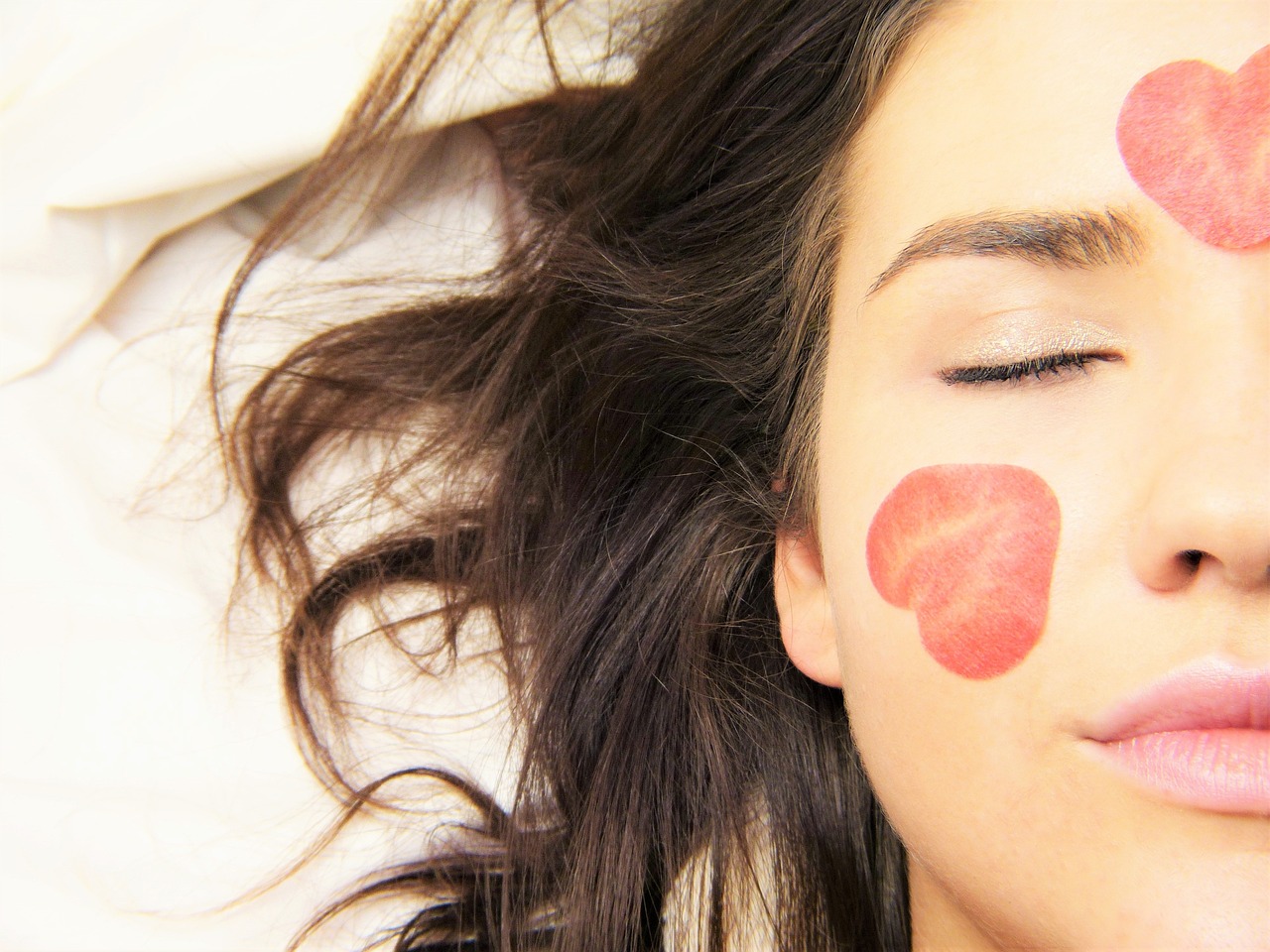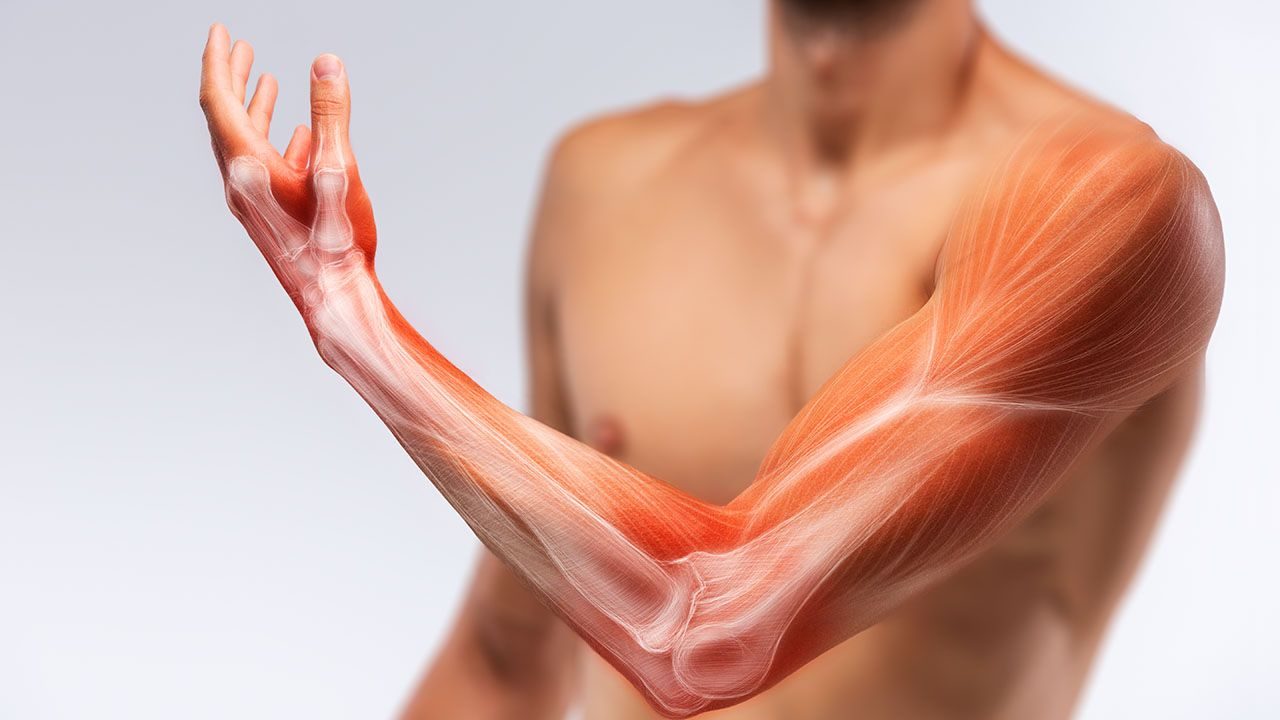Collagen and growth hormone are two important ingredients that have a significant impact on our health, beauty and well-being. Collagen is the main building protein of our skin, hair, nails, joints, tendons and cartilage. Growth hormone, on the other hand, is a hormone produced by the pituitary gland that stimulates the growth and regeneration of cells, bone and muscle tissue. Both of these substances are closely related and influence each other. In this article you will learn how collagen and growth hormone affect our health and beauty, what are their sources and how to supplement them.

What is Collagen and how is it formed?
Collagen is a protein made of chains of amino acids that form a triple helix. It is the most abundant protein in the human body, constituting about 25-30% of the total protein mass. Collagen comes in different types, the most important of which are types I, II and III.
- Type I collagen is most present in the skin, hair, nails, bones and tendons.
- Type II collagen is found mainly in cartilage and joints.
- Type III collagen is part of connective tissue and blood vessels.
Collagen is produced in cells called fibroblasts, which synthesize procollagen – an inactive form of collagen. Procollagen is then transported to the intercellular space, where it undergoes enzymatic modifications and forms collagen fibres. These fibers are then networked by other structural proteins such as elastin and fibronectin.
What is Growth hormone and how is it made?
Growth hormone (GH) is a polypeptide hormone produced by the pituitary gland that stimulates the growth and regeneration of cells, bone and muscle tissue. Its genes are located on chromosome 17 and are related to placental lactogen genes. GH consists of 191 amino acids and contains two disulfide bridges.
Growth hormone secretion is pulsatile and depends on age, sex, glucose level, exercise, sleep, stress and some amino acids. Growth hormone secretion is stimulated by somatoliberin – a hormone released by the hypothalamus – and inhibited by somatostatin – a hormone that inhibits GH secretion.

How do collagen and growth hormone affect our health and beauty?
Collagen and growth hormone have many common functions in our body. Here are some of them:
- They stimulate the growth and regeneration of cells, bones and muscles. Growth hormone stimulates the production of somatomedins, which increase collagen synthesis in fibroblasts and chondrocytes. Collagen also increases the production of growth hormone because it contains a lot of glycine.
- They improve skin elasticity and firmness. Collagen is the main component of the skin, which is responsible for its elasticity and tension. Growth hormone increases the thickness of the skin and reduces its sagging, because it stimulates the synthesis of collagen and elastin. In addition, GH increases blood flow in the skin, which improves its hydration and nutrition.
- They prevent the aging of the body. Collagen and growth hormone have antioxidant and anti-inflammatory effects that protect cells from damage by free radicals and oxidative stress. Collagen also prevents degradation of collagen fibers by enzymes activated by aging factors. Growth hormone, on the other hand, increases the body’s resistance to infections and diseases, because it stimulates the immune system and DNA repair.
- They support slimming and fat reduction. Collagen and growth hormone affect the metabolism of carbohydrates and fats, promoting calorie burning and maintaining muscle mass. Collagen improves the feeling of satiety and reduces appetite because it is a source of protein with a low glycemic index. Growth hormone, on the other hand, induces glycogenolysis and increases the release of glucose from the liver, which increases energy levels and physical performance. In addition, GH increases lipolysis – the breakdown of fats – and reduces lipogenesis – the synthesis of fats – raising plasma free fatty acid levels.
What are the sources of collagen and growth hormone?
Collagen and growth hormone are naturally produced by our body, but their levels decline with age. We can provide them from the outside through diet or supplementation.
The sources of collagen in the diet are animal products, such as meat, fish, poultry, eggs, dairy products, jelly or gelatin. However, it is better to use supplements with hydrolyzed collagen or collagen hydrolyzate, which is more easily absorbed by the body.
The sources of growth hormone in the diet are products rich in protein and amino acids that stimulate the secretion of GH, such as nuts, seeds, soybeans, whey or honey. However, the consumption of these products does not provide a large increase in GH levels in the blood. Therefore, it is better to consider using HGH or other GH modulators like sarms or peptides.
HGH
First of all HGH is not a steroid. It is a human growth hormone (HGH) produced with recombinant DNA technology. HGH is a highly purified protein with 191 amino acid residues. Human Growth Hormone (HGH) is not only one of the most beneficial hormones our body produces, but one of the most sought after in exogenous form. In an exogenous form, HGH is identical to the naturally produced hormone, and represents not only one of the most beneficial exogenous hormones but one of the most well-tolerated among men and women. It’s high level of toleration applies not only to medicinal use but performance enhancement as well. HGH is not a steroid.
HGH supports the metabolism of carbohydrates, fats and minerals. It can stimulate the growth of connective tissue through a direct mode of action, and it has been shown to significantly increase the size and number of cells in skeletal muscle. It can support triglyceride hydrolysis, which in turn will promote the reduction of adipose tissue or body fat, therefore it is very effective in its abilities surrounding fat.

To read more about HGH or RHGH Click Here.
Another supplements with growth hormone or its precursors, such as GHRP-6, GHRP-2, CJC-1295, MK-677 or Ipamorelin. These substances are synthetic peptides that increase GH secretion by the pituitary gland. However, it should be remembered that the use of these supplements may have side effects and requires consultation with a doctor.
What are the benefits of collagen and growth hormone supplementation?
Collagen and growth hormone supplementation can improve our appearance and well-being when used correctly and under medical supervision. Some of the benefits are:
- Better skin, hair and nails. Supplements increase skin elasticity, hydration and density, reduce wrinkles and cellulite, strengthen hair and nails and accelerate wound healing.
- Stronger bones, joints and tendons. Supplements prevent musculoskeletal diseases because they increase bone density, joint lubrication and tendon flexibility, and stimulate bone and cartilage repair.
- More muscle mass and less body fat. Supplements support muscle building and fat burning because they increase protein synthesis and energy metabolism, increase testosterone and thyroid hormone levels, and inhibit cortisol.
- Better memory, concentration and mood. Supplements improve cognition and mood because they increase blood flow to the brain, stimulate neurogenesis, and increase neurotransmitter levels.
Summary
Collagen and growth hormone are two important components that affect our health, beauty and well-being. Their level decreases with age, which leads to many adverse changes in our body. We can provide them from the outside through diet or supplementation, but it should be done under the supervision of a doctor and with the right dosage. Only then can we enjoy the full benefits of these substances.







